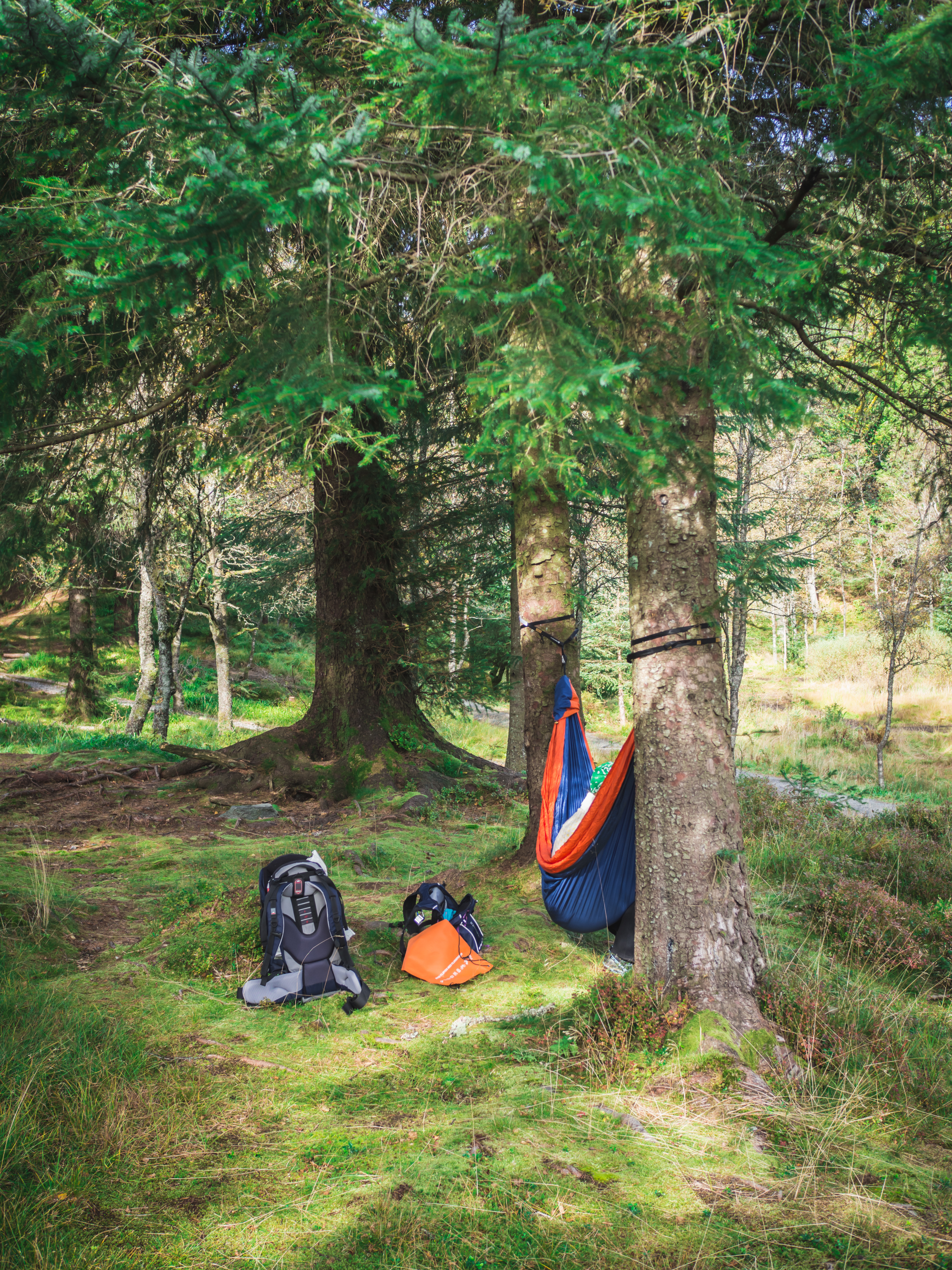
In Norway, there is the concept of allemannsretten (“every man’s right”), which is the right to use nature freely. This concept has been around since ancient times and officially became part of the Outdoor Recreation Act in 1957. It ensures that nature is an experience open to all.
Included in this tradition is the right to travel the land, stay on the land, and gather from the land. The main rule is to be careful and respectful of nature, as well as the people who own the land and those who will come after. The terms utmark and innmark divide the areas where the right to travel is valid or restricted. Innmark areas (or land within the boundaries) are outlined clearly and can be simply regarded as inland areas such as courtyards, housing estates, cultivated land, and similar areas where public travel will be of concern to the owner. Cultivated land may only be crossed when frozen or covered in snow. All areas outside of this are considered utmark, or uncultivated and uninhabited areas that are accessible to all. Generally speaking, this includes forests, mountains, marshes, and coastal areas which make up most of the country.
Within the right to travel, people are also free to pluck wild plants, flowers, bushes, and mushrooms. Wild nuts must be eaten on location and collecting tree sap requires permission from the landowner. The unwritten agreement is to take only what you need. This idea—it’s a way of life, really—reflects Norwegians’ respect for nature. Fulfillment comes not only from taking what we need, but also from ensuring that we leave something for others to enjoy as well. This, in turn, allows nature to replenish itself, and helps create a sustainable cycle.
If you are traveling throughout Norway’s pristine nature, here are some useful guidelines to refer to:
- You are allowed to camp or sleep under the stars as long as you are at least 150 meters away from the nearest inhabited house or cottage. This covers the forests, countryside, mountains and coastline.
- Campfires are not allowed in or near forested areas from 15 April to 15 September. Outside of this period, always ensure the proper procautions are taken to ensure it is safe and completely extinguished when left.
- Travelers not staying in the mountains or national parks are allowed to stay in one spot for one day. After that, it is necessary to ask for permission from the landowner.






Add a comment